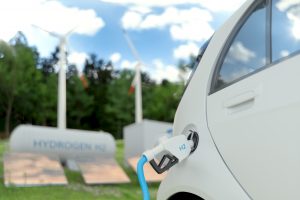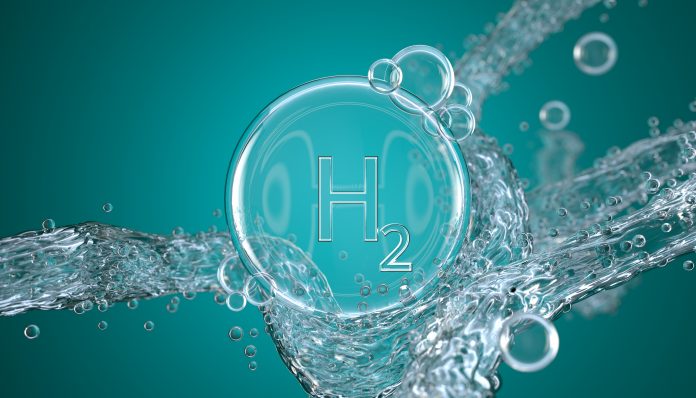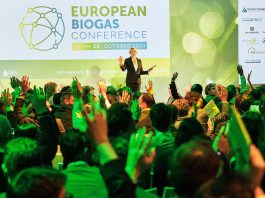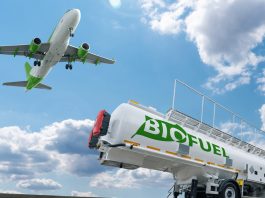Bart Biebuyck, Executive Director of the Clean Hydrogen Partnership, explains more about the Partnership and how it is helping to accelerate development and deployment of clean hydrogen technologies in Europe.
The Clean Hydrogen Partnership, launched in November 2021, is a unique public private partnership supporting research and innovation activities in hydrogen technologies in Europe. Its aim is to accelerate the development and deployment of advanced clean hydrogen applications and strengthen the competitiveness of the clean hydrogen value chain across the European Union (EU).
The members of the Clean Hydrogen Partnership are the European Commission (EC); fuel cell and hydrogen industries represented by Hydrogen Europe; and the research community, represented by Hydrogen Europe Research.
The Partnership builds on the results of years of co-operation driven by its predecessor, the Fuel Cell and Hydrogen Joint Undertaking (FCHJU), and takes this to the next level in order to accelerate the development and deployment of a European value chain for clean hydrogen technologies. It will focus on producing, distributing, and storing clean hydrogen and on supplying sectors that are hard to decarbonise, such as heavy industries and heavy-duty transport applications.

In October 2022, the Clean Hydrogen Partnership co-hosted the third edition of European Hydrogen Week, alongside its members. This is the biggest annual event dedicated to hydrogen and offers a place for industry, policymakers, researchers and the public to join together to share innovation in hydrogen technologies and discuss the most pressing issues.
To discover more about the work of the Partnership, The Innovation Platform spoke to Bart Biebuyck, Executive Director of the Clean Hydrogen Partnership.
How has Europe’s hydrogen economy developed in recent years and what is the Clean Hydrogen Partnership doing to boost this development?
As the ‘hydrogen economy’ is developing, we are witnessing the emergence of the first regionally integrated hydrogen ecosystems, so-called ‘Hydrogen Valleys’. This is a topic that is very dear to me, as the concept itself was first coined by the FCH JU, the predecessor of the Clean Hydrogen Partnership. We have started from the idea that hydrogen allows more renewables in the energy system through storage and enables sectoral integration and that, within a specific territory or region, these locally integrated hydrogen ecosystems can achieve both climate change mitigation and regional economic development. In a Hydrogen Valley, we are covering more than one end sector or application in the mobility, industry, and energy markets, as well as multiple steps of the value chain from hydrogen production to storage, transport, etc.
REPowerEU is the EU’s plan to rapidly reduce dependence on Russian fossil fuels and fast-forward the green transition. Renewable hydrogen will be key to replace natural gas, coal, and oil in hard-to-decarbonise industries and transport. With its RePowerEU Plan, the European Commission topped up Horizon Europe investments to double the number of Hydrogen Valleys (50 Valleys are expected by 2030) and is committed to achieve 10 million tons of domestic renewable hydrogen production and 10 million tons of renewable hydrogen imports by 2030. This is a strong signal that Hydrogen Valleys will become an important cornerstone in producing, importing, transporting, and using clean hydrogen in Europe. Other geographies are now following similar strategies (hydrogen hubs, clusters, ecosystems, etc.), as local agglomerations of various hydrogen users, shared infrastructure and joint supply sources are essential to scale the industry and take the hydrogen economy to the next level.
Can you elaborate on the recent investments in the hydrogen sector and how these will help to further innovation in hydrogen solutions?
First, the European Commission will contribute to the Partnership up to €1bn for the period 2021-2027, a budget almost 55% higher than the one of FCH 2 JU. This amount will be complemented by at least an equivalent investment from industry, pushing the total budget to €2bn. To this, we add an additional investment of €200m, announced by the European Commission in the ‘REPowerEU Plan’, which will be available for the Clean Hydrogen Partnership to help double the number of Hydrogen Valleys in Europe and accelerate the implementation of the hydrogen economy across the EU.
Our funding is distributed annually, with the first call for proposals which we launched in January 2022 having an overall budget of €300.5m, covering a wide spectrum of research and innovation activities along the entire hydrogen supply and value chain: renewable hydrogen production, hydrogen storage and distribution, hydrogen end-use in transport and heat and power.

For example, funding will be provided in 2022 to increase cost reduction and efficiency for a variety of renewable hydrogen production routes, with water electrolysis being the main technology supported. Furthermore, an EU-wide logistical infrastructure needs to be developed to transport hydrogen from areas with large renewable potential to demand centres across Europe. We also had a specific topic on the Hydrogen Valleys.
You have recently launched a second call for Project Development Assistance (PDA) following a successful first initiative. How would you define the success of the first call and what are you hoping to achieve with this second call?
Following the success of its first Project Development Assistance initiative, which ran in 2020-2021, the Clean Hydrogen Partnership has launched a second call for Project Development Assistance (PDA), with the aim of helping more regions across Europe to develop their hydrogen projects.
We started from the idea that local authorities often need additional experience or expertise in advancing projects towards real deployment and will therefore benefit from expert support. Local governments have, in many cases, been able to secure significant investment in fuel cell and hydrogen projects and are deploying technology faster than would be possible on a national scale or for a private company to do alone, so for us it makes sense to ‘go local’.
The first Project Development Assistance (PDA) for regions and cities initiative has supported 11 regions from across Europe between 2020 and 2021, enabling project concepts to move forward to implementation and facilitating the exchange of lessons learnt between observer regions. Project plans include the deployment of hydrogen production from wind and solar power and as an industrial by-product.
We have decided to this time focus on EU cohesion countries, islands, and outermost regions, to stimulate project development in these areas that often have the potential but lack the expertise. Up to 15 regions will be selected to receive targeted support from dedicated hydrogen consultants. This will allow these regions to further develop their project plans, thus advancing the deployment of fuel cell and hydrogen technology across all European regions and territories, including in areas that have seen limited hydrogen deployments to date. Final applications will be evaluated in December. Project Development Assistance is then planned to begin in early January next year. More information can be found on the dedicated website: https://www.h2regions.eu/.
European Hydrogen Week 2022 took place this October. What were the key take-aways from this?
European Hydrogen Week is a platform for policymakers and industry to discuss the state of the hydrogen economy, and for the Clean Hydrogen Partnership to present the results of its various projects. We had discussed many interesting topics, but I would like to point out two main messages coming out of these discussions. The first is that we need to accelerate deployment, we need a faster rollout of hydrogen technology for transport, homes, businesses, and industry. Our main goal will be to reduce the cost of renewable hydrogen and increase production, storage, distribution, and use.
Greater co-operation and partnerships between all sectors, and small and large companies, was another recurring message throughout the week. These opportunities should include collaboration with EU countries through cohesion funding, and with cities. A total of 100 EU cities have committed themselves to becoming climate-neutral by 2030. As some of these are port cities, they have the potential to become Hydrogen Valleys. I am looking forward to seeing these developments taking shape in the near future, and I am already looking forward to next year’s edition of the event.
Finally, this year we organised the fifth edition of the Clean Hydrogen Partnership Awards, to celebrate projects that have achieved excellence in clean hydrogen technologies research and innovation. This year’s award categories recognise the best innovation, success story, project outreach and, for the first time, the recently established European Hydrogen Valleys.
Bart Biebuyck
Executive Director
Clean Hydrogen Partnership
https://www.clean-hydrogen.europa.eu/index_en
https://www.linkedin.com/company/clean-hydrogen-partnership/
Please note, this article will also appear in the twelfth edition of our quarterly publication.









